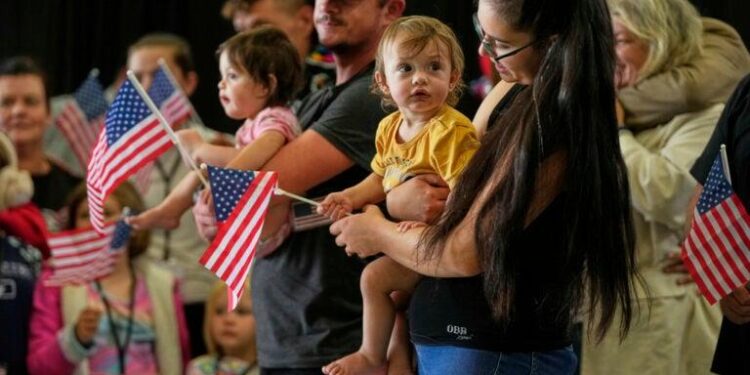Are White South Africans Truly Refugees? A Historian’s Insight into Apartheid’s Enduring Impact
Amid rising social unrest and economic uncertainty, an increasing number of white South Africans have sought refuge abroad, sparking intense discussions about whether their circumstances qualify them as refugees. This phenomenon raises critical questions: What motivates their departure? How does race influence their experiences? And importantly, do these experiences align with international definitions of refugee status? Drawing from a historian’s perspective shaped by living through apartheid and extensive academic research, this article explores the nuanced intersections of identity, power structures, and historical legacies in South Africa. It challenges readers to rethink how the country’s divided past continues to affect migration patterns today.
The Roots of Displacement: Historical Foundations Behind White Migration
The movement of white South Africans away from their homeland cannot be fully understood without examining the deep-seated historical forces at play. The nation’s colonial origins and decades-long apartheid regime established rigid racial hierarchies that continue to influence societal dynamics.
- Colonial Beginnings: European colonization starting in the mid-1600s entrenched racial segregation that would shape future policies.
- Apartheid Enforcement (1948–1994): Systematic legal discrimination privileged whites while oppressing Black communities, creating long-lasting socio-political divides.
- The Democratic Transition: The 1990s ushered in majority rule but also sparked anxiety among many white citizens concerned about losing economic advantages and political influence.
This historical backdrop sets the stage for understanding contemporary feelings of displacement among some white South Africans. Today’s realities—marked by shifting demographics and heightened crime—compound these sentiments. Many perceive themselves as vulnerable minorities facing threats to safety and stability.
| Main Challenges | Description |
|---|---|
| Economic Instability | Persistent unemployment rates exceeding 30% nationally contribute to widespread insecurity across communities. |
| Crime Concerns | A surge in violent crimes—including home invasions—fuels fears for personal security among various groups. |
| Cultural Identity Struggles | Tensions arise as individuals grapple with reconciling historic privilege with evolving social norms post-apartheid. |
Assessing Whether White South Africans Meet Refugee Criteria Today
The question of whether white South African emigrants qualify as refugees has become increasingly prominent amid ongoing debates on race relations within the country. Historically benefiting from institutionalized privilege during apartheid, many now express concerns over safety risks and diminishing socioeconomic status under a more inclusive government framework. However, international refugee law typically defines refugees as those fleeing persecution based on immutable characteristics such as race or religion—a standard that complicates claims rooted primarily in crime or economic hardship rather than targeted oppression.
A closer look reveals several key considerations shaping this discourse:
- Sociopolitical Environment: While rising crime rates are often cited reasons for emigration, such challenges affect all racial groups indiscriminately rather than constituting systematic persecution against whites specifically.
- Government Policies & Land Reform Debates: Political rhetoric around land redistribution can heighten anxieties but does not necessarily equate to state-sponsored persecution recognized under asylum laws worldwide.
- The Global Perspective on Race-Based Claims: International bodies remain cautious when evaluating refugee applications linked to complex post-colonial contexts where historical privileges intersect with present inequalities.
(For example: In 2023 UNHCR data showed less than 5% acceptance rate for asylum claims citing generalized violence without direct evidence of targeted persecution.)*
*Source: UNHCR Global Trends Report 2023
This analysis underscores a vital distinction between genuine threats warranting protection under refugee conventions versus broader socio-economic grievances rooted in transitional justice complexities. Understanding this difference is essential when engaging with narratives surrounding displacement within post-apartheid society—and highlights ongoing challenges related to reconciliation efforts across diverse populations seeking equity and security alike.
Navigating Solutions: Bridging Historical Awareness With Present-Day Realities
Tackling sensitive issues around identity loss and perceived marginalization requires fostering open dialogue grounded both in accurate history education and empathetic community engagement initiatives aimed at healing divisions created by decades-long systemic inequality.
Education remains pivotal; comprehensive curricula addressing apartheid’s full impact alongside current societal transformations can cultivate informed perspectives among younger generations.
Community-driven programs promoting intercultural understanding help dismantle stereotypes while encouraging solidarity across ethnic lines—for instance:
- Civic forums facilitating conversations about shared histories beyond simplistic binaries;
- Cultural festivals celebrating diverse heritages contributing equally to modern nationhood;
- Liaison partnerships between historians, educators & local leaders expanding collective memory inclusivity;
| Policy Focus Area | Recommended Actions |
|---|---|
| Housing Equity < td >Implement fair housing reforms addressing legacy disparities affecting marginalized groups regardless of race . | |

